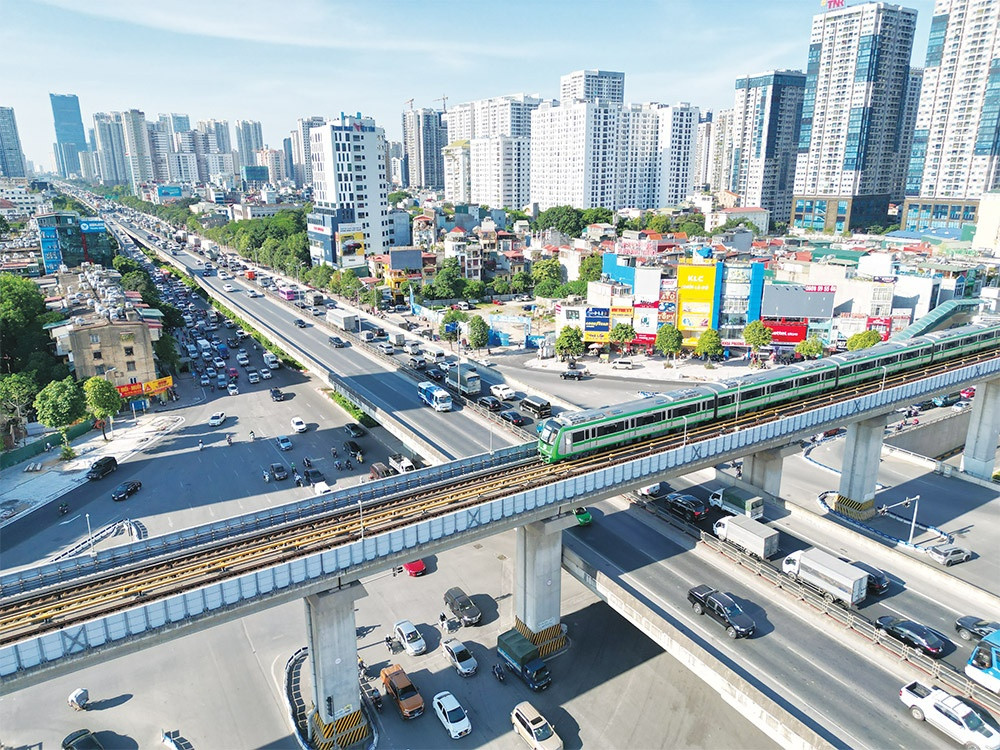 |
| Vietnam needs big push for private investment in transport, Photo: Duc Thanh |
Private investors were pleased to find that issues related to financial mechanisms for public-private partnership (PPP) projects have been worked on after the National Assembly in late 2023 issued a resolution to pilot the state capital contribution of 70 per cent to PPP projects in certain areas, instead of 50 per cent as in the past.
“The new legal improvement pins high hopes on future opportunities for private investors to join transport infrastructure projects in the upcoming time,” Tran Chung, chairman of the Vietnam Association of Road System Investors (VARSI), told VIR.
“It is expected that in 2024-2025, when the Law on PPP Investment will be amended and more legal barriers are solved, many related projects will be carried out as Vietnam needs huge investment for transport infrastructure development amid state budget constraints,” he added.
Chung cited the Chi Lang-Huu Nghi PPP transport project, which will organise bidding to select a potential investor this year, as an example.
Last year, disbursement of public investment was also a spotlight in the sector’s performance, when it disbursed over 95 per cent of the total. As many as 475 km of expressways were put into use, increasing the total figure in the country to almost 1,900 km during the year. Chung, however, admitted that the private investment picture in the sector was not yet bright, despite strong efforts to make improvements.
Among member companies of VARSI, only Deo Ca Group joined some projects. The company is cooperating with Becamex Binh Duong in investing in the Ho Chi Minh City, Thu Dau Mot, and Chon Thanh expressway project, beltways 3 and 4, and the Suoi Tien station metro line for Binh Duong New City.
Similar to domestic private investment, foreign investment in transport also have room for growth, despite new ventures coming that involve the likes of Indian multinational Adani Group, International Holdings Company, Hong Kong’s HAECO Group, China Railway Engineering Corporation, and others.
“PPP is the optimal model to pull in investment in transport, as many domestic private and foreign investors show their strong interest. However, it is yet to meet expectations because of legal barriers, including the unfeasible financial mechanism and risk-sharing mechanism,” Chung explained.
At the European Chamber of Commerce in Vietnam’s (EuroCham) 2024 Whitebook launch last week, PPP-related problems were once again raised.
According to EuroCham, due to difficulties with the evolving PPP regime and the lack of government policy certainty and risk allocation available, sponsors and investors have, in certain sectors, primarily relied on implementing smaller-scale projects under the Law on Investment, without the protection of a long-term PPP contract and related regulations.
This has limited the amount of capital investors are willing to deploy against infrastructure projects in Vietnam, meaning large-scale infrastructure developments remain extremely rare for a country of the scale and growth potential of Vietnam, members said.
Prime Minister Pham Minh Chinh on January 1 requested authorities at all levels to speed up the investment progress of transport infrastructure projects. Just over a week later, PM Chinh directed them to focus on removing obstacles related to construction norms and unit prices, along with issues in exploiting and supplying construction materials for key transportation projects.
The prime minister also attended the groundbreaking ceremony of a PPP expressway project, which leads from Dong Dang in Lang Son province to Tra Linh in Cao Bang province.
The 13th Party Congress determined the goal that the whole country will have about 3,000 km of expressways by 2025 and about 5,000 km of expressways by 2030. The period 2021-2025 has focused maximum resources on developing transportation infrastructure, three times more than the 2016-2020 period.
The Ministry of Transport will aim to co-organise investment promotion conferences with localities in transport infrastructure. It will also promote attracting capital through deploying toll collection franchises and auctioning toll collection rights.
The Transport Development and Strategy Institute estimates that the country needs about $87.3 billion for transport infrastructure by 2030, not including infrastructure maintenance costs.
“In the context of population decline and increasing international competition, there is a need for the majority participation and investment of public units in strategic infrastructure such as airports and ports, forming many models of PPP,” said Uehara Atshushi, Vice Minister for International Affairs under Japan’s Ministry of Land, Infrastructure, Transport and Tourism.
Source: VIR